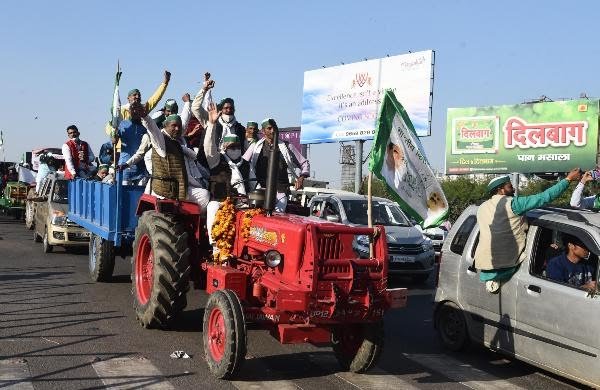On February 16, farmers and workers across India are set to stage a sectoral industrial strike and Grameen Bharat Bandh, urging for their demands to be met. The Samyukta Kisan Morcha (Non-Political), representing farmers, has rallied various farmer organizations to participate in this nationwide protest, scheduled to run from 6 AM to 4 PM.
According to reports by The Indian Express, farmers plan to stage massive chakka jams on main roads from 12 PM to 4 PM, effectively shutting down most state and national highways in Punjab for four hours. This coordinated effort aims to draw attention to the grievances of farmers and workers.
Support for the strike has garnered momentum, with public intellectuals and artists issuing a joint statement in solidarity with the joint call for action. Thirty-four signatories have urged people from all walks of life to extend their support to this significant protest.
Various sectors are expected to participate in the Bharat Bandh, with potential closures of private and government offices, village shops, and disruptions to transportation and agricultural activities. However, essential services such as ambulance operations, medical shops, and educational institutions will continue uninterrupted.
The demands put forth by the Samyukta Kisan Morcha include a Minimum Support Price (MSP) for crops based on the Swaminathan formula, legal guarantee of procurement, debt waiver, no increase in electricity tariffs, and other measures aimed at supporting farmers’ livelihoods.
Furthermore, the SKM has advocated for free 300 units of power for farming and domestic use, comprehensive crop insurance, and an increase in pensions to ₹10,000 per month, among other requests.
In the midst of these protests, a panel of three Union ministers is scheduled to meet with protesting farmer leaders in Chandigarh. Agriculture and Farmer Welfare Minister Arjun Munda, Minister of Commerce and Industry Piyush Goyal, and Minister of State for Home Affairs Nityanand Rai will engage in discussions, marking the third round of talks between the two parties. Previous dialogues on February 8 and 12 ended inconclusively.
The unrest stems from farmers’ camps at the Shambhu and Khanauri borders of Punjab and Haryana, as they persist in their demands while seeking to march towards Delhi to press the government to address their grievances. As tensions escalate, the outcome of the dialogue and the extent of participation in the nationwide strike remain pivotal factors in shaping the trajectory of the ongoing protests.

